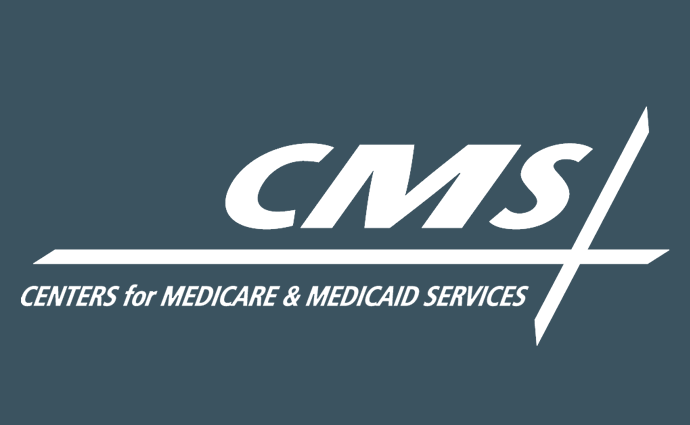CMS proposes 2.8% payment rate boost for inpatient rehabilitation facilities
The agency also proposed adding, removing, and adjusting measures in the inpatient rehabilitation facility quality reporting program.

Source: CMS logo
- CMS has proposed to increase payment rates for inpatient rehabilitation facilities (IRFs) by 2.8 percent in 2025.
The payment update in the IRF Prospective Payment System (PPS) reflects a market basket increase of 3.2 percent and a 0.4 percentage point decrease for productivity. CMS has also proposed to update the outlier threshold to maintain outlier payments at 3.0 percent of total payments.
CMS said that if a more recent estimate of the market basket update or productivity adjustment becomes available, it will use them to determine the payment update for FY 2025.
The proposals would result in an estimated increase in IRF payments of $255 million, reflecting a $280 million boost from the payment rate update and a $25 million decrease due to the outlier threshold update.
The rule includes an update to the IRF PPS wage index, which states that wage index decreases will be mitigated by the permanent 5 percent cap on negative wage index changes.
CMS also has proposed to phase out the rural adjustment for IRFs transitioning from rural to urban status under the new core-based statistical areas. These IRFs would receive two-thirds of the rural adjustment in FY 2025, one-third in FY 2026, and no adjustment in FY 2027. The agency estimates that eight IRFs will change their status from rural to urban in FY 2025.
The rule proposed changes to the IRF quality reporting program (QRP). CMS proposed adopting four new items in the IRF-Patient Assessment Instrument (PAI) as standardized patient assessment data elements starting in FY 2028. The data elements fall under the social determinants of health categories of living situation, food, and utilities and promote engaging with and advancing equity in IRFs.
Collecting this social needs data may help IRFs better address these needs with patients, caregivers, and community partners during the discharge process.
Additionally, CMS has proposed modifying the Transportation item under the social determinants of health category to improve and align data collection. The proposals include clarifying the look-back period for when a patient experienced a lack of transportation, simplifying response options for patients, and collecting the assessment item at admission only. The rule also proposed removing the Admission Class assessment item collected at admission from the IRF-PAI item set.
CMS issued two requests for information in the IRF PPS. First, the agency seeks feedback on potential measure concepts, including vaccination composite, pain management, and depression. Second, the agency is seeking input on developing a star rating system for the IRF QRP that would help consumers identify quality differences when selecting a provider and promote competition in the healthcare market.
